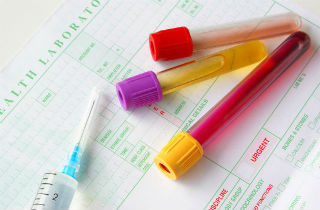On occasion.
Patients routinely share private information with an outpatient psychiatrist in exchange for advice and treatment. However, when a patient is asked about illegal drug use, or when a psychiatrist requires drug testing, matters of trust naturally emerge for both parties. So when do psychiatrists drug test? What can you expect and do about it?
More here on the questions and concerns you may have when faced with a required drug test for psychiatric treatment. And we invite your questions about drug testing during psychiatric treatment here.
Drug Testing during Psychiatric Treatment is the Doctor’s Choice
Just as hospitals do not have a single standard for drug testing nurses, psychiatrists have no single standard for drug testing patients. With the exception of inpatient facilities that require drug testing, or when testing is mandated by a court order, patients who elect treatment always retain the right to refuse a drug test. In most cases, the decision to test a patient for illegal drugs is made at the discretion of the psychiatrist (much like random drug testing pain management doctors order). Some practitioners elect to make drug testing a standard policy, while others make the decision to test on a case-by-case basis. Ultimately, each practitioner has the power to establish and enforce required drug testing prior to providing a diagnosis and treatment plan for a patient.
For those who may be inclined to refuse recommended drug testing, consider the points we make here to ensure your decision is based on factual information rather than common misunderstandings. There are two main reasons why psychiatrists might order drug tests.
Reasons Psychiatrists order drug tests
1. To provide safe, suitable psychiatric care
The main intent behind a requested drug test is to become properly informed about a patient in order to provide safe, suitable care and support the interest of a patient’s mental and physical health and well-being.
2. To meet medical standards, probation requirements or personal policy
Psychiatrists who enforce mandatory drug testing are taking a “better safe than sorry” approach to ensure their treatment is effective and not exacerbating symptoms or creating new ones for patients who may deny active drug use. This chosen policy is upheld to every patient seeking treatment as a protective measure for the patient and the psychiatrist.
Myths About Drug Testing and Psychiatrists
Some common misconceptions patients have about a psychiatrist’s motives for requiring drug testing can lead to unfounded complaints and concerns. More importantly, a lack of understanding can result in drug treatment being delayed or declined outright.
In some cases, patients who are drug free dislike the insinuation that drug usage is contributing to their symptoms. In these cases, a patient could conclude they are unfairly mistrusted. Furthermore, mandatory drug testing could create resentment for patients who perceive they are being suspected of criminal behavior. Despite common beliefs, psychiatrists do not set out to designate patients as criminals. Instead, a drug test is actually a way that psychiatrists help diagnose potential problems.
More commonly, patients whom may benefit from drug treatment resist the idea of testing due to fears that detection of illegal drug use will get them in trouble with the law or lead to someone like a parent, spouse, or employer finding out. But this is not true. The Health Insurance Portability and Accountability Act (HIPAA) of 1996 protects a patient’s personal health information, keeping it strictly confidential. When drugs are detected, the psychiatrist is under legal obligation to maintain privacy unless the drug test is a legal mandate as result of a court order.
There are some exceptions, however, to the protections provided by HIPAA, such as when the patient is a minor. Parents have the right to access the medical records of a minor child when they give consent for their child’s treatment. If parental consent is not required, psychiatrists typically will not disclose drug use to parents without the minor’s permission. However, most practitioners will encourage minors to talk with their parents when doing so will lead to better management of their drug treatment.
Understanding is key to psychiatric treatment
It’s natural to feel uncomfortable when put on the spot to discuss secret behaviors, and the fears associated with getting in trouble can understandably lead to a protective stance. Patients can choose to protect themselves from trouble or shame, but they should first consider if such a strategy is even necessary. It’s important patients know their rights when it comes to drug testing, and psychiatrists should always encourage and welcome patient questions in cases of uncertainty.
Stay tuned for part two of this series, which will reveal crucial insights into why psychiatrists require drug testing, and why being tested should be the least of a patient’s worries.
Psychiatrists drug test questions
Do you still have questions about drug testing during psychiatric treatment? Please leave your questions here. We will do our best to answer you personally, with a prompt reply.









Related Posts